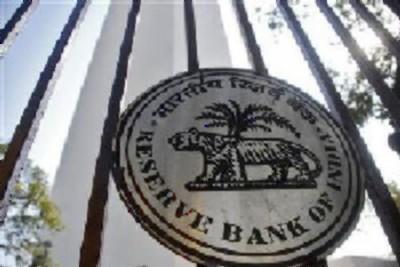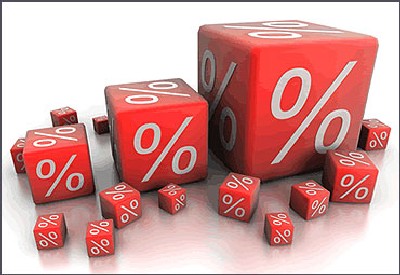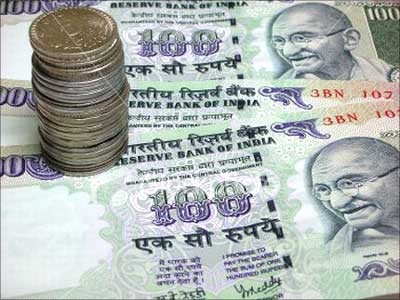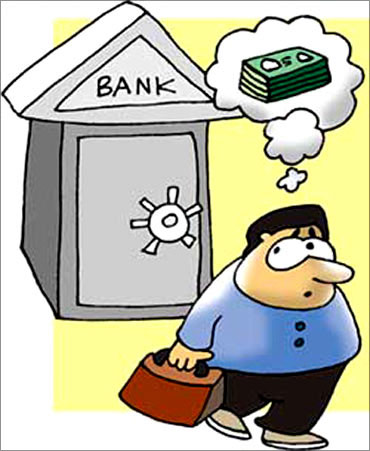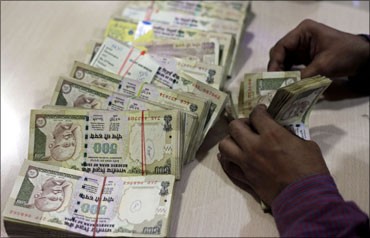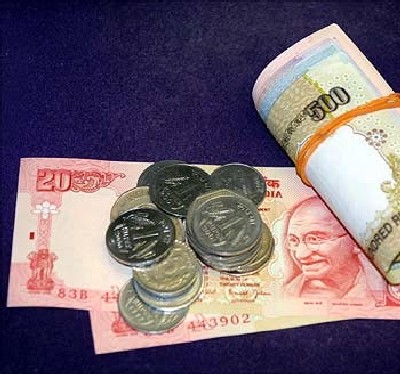 | « Back to article | Print this article |
Savings rate deregulation: How does it affect you?
As part of its deregulation drive, Reserve bank of India has deregulated interest rates on all deposits (except the saving deposit) long back.
This step increased competition among banks and now depositors have the choice to figure out the highest fixed deposit rate and use the bank that offers it.
Today, RBI has also deregulated the savings rate along with increasing the policy rates by 25 basis points, the 13th time in the last 18 months.
Click NEXT to read more...
Savings rate deregulation: How does it affect you?
Past actions of the RBI
Keeping the process of deregulation going, RBI passed a draft order making its intention clear regarding deregulating the savings rate. However this has not been received well by the banks.
The interest rate on savings deposit today stands at 4 per cent, recently changed from 3.5 per cent. The rate is low in today's high inflation era.
One of the biggest advantages of saving account interest rate deregulation will be that the policy rate hike will also reflect in saving accounts interest rate.
A matured economy cannot afford to have such differences in the market rate and saving accounts rate.
Click NEXT to read more...
Savings rate deregulation: How does it affect you?
Moreover, inflation is stubbornly high for last couple of quarters. The real interest rate from savings account is negative by a huge margin.
Internationally, many developed economies have deregulated interest rates in savings account years ago. Canada, USA, UK, Singapore, and many countries have given the right to fix interest rates on savings accounts to commercial banks.
The deregulation has also helped build efficiency in the system where there is not much difference between savings deposit rates and market rate. There is no reason why India should not have this norm as well.
Click NEXT to read more...
Savings rate deregulation: How does it affect you?
Why banks oppose it
For banks, the major part of their income is generated from the interest rate differences between the lending rate and deposit rate. Hence it serves banks to keep the deposit rates low.
Banks define a term called CASA deposits which stands for current account, savings account deposit. This is usually known as low interest deposit which banks can lend to borrowers at a high interest rate.
The interest rate on current account is zero anyway. The contribution of CASA in bank's profit is very big. Any increase in the CASA rates will reduce bank's profit. As per an estimate, CASA deposits are about 30 to 50 per cent of the total deposits of a bank.
Click NEXT to read more...
Savings rate deregulation: How does it affect you?
Second, the timing is not right because of volatility of the market situation. This argument may have some merit.
Deregulating saving accounts deposit rates may result in innumerable transactions and high cost to banks. Today, when the interest rate is almost at peak and bank credit is steadily going down, this will be another blow.
Finally, banks have been asking RBI to look at the complete range of services provided by banks and then deregulate them. Essentially, they want to ensure that they can charge for some services which are free now.
Click NEXT to read more...
Savings rate deregulation: How does it affect you?
Impact on depositors
Depositors can expect better interest rates than the existing rates. Deregulating will certainly increase competition between banks and it will benefit the depositors. Look at the competition in fixed deposit rates after it was deregulated. The saving account interest rate will follow a similar pattern. Your cash will have more value.
Second, there could be some charges levied by banks to cover some part of losses that will accrue because of increased interest rates on saving accounts. Depositors will have to be more wary of the rules of charges and fees.
Finally, this will have good impact on rural and semi-urban depositors who do not have much knowledge about fixed deposit and who have been actually losing money because of high inflation. The increased interest rate will bring relief to the masses that use their savings account for their savings as well as transactions.
Click NEXT to read more...
Savings rate deregulation: How does it affect you?
Impact on banks
The financial reform that started in late 80s have been going steadily and doing well in India. It has created market efficiency, provided fairly strong checks and balances system, and freed up private banks. Finally, keeping with the reform, RBI has deregulated the savings rate too.
Banks have called this a big blow to their profitability which is already under severe constraints because of high interest rate.
The rising interest rates have already increased the prospect of NPAs impacting the margin of banks. Increasing the interest on savings deposit which is a big portion of banks deposits will further increase the cost and thus impact the margin of banks.
Not everyone is unhappy about this move though. The new private banks that want to penetrate the market see saving accounts rate as one of the most potent tools to attract customers.
Click NEXT to read more...
Savings rate deregulation: How does it affect you?
Concerns
There are concerns on this move as India is still a poor country where the deposits of majority of people are very less in the bank.
Deregulating savings account rate will hurt the poor people most as the banks will give them even lower interest while the well-offs can get a better interest rate.
For example, a person with income of Rs 10,000 may get a rate of just 2 per cent while a person with a salary of 1,00,000 may manage to get 5 per cent. This will further create the rich poor divide.
The other concern is that it may not help the saving account holders as intended. Banks will devise some ways to pass the increased cost to customers in forms of charges on transaction, ATM usage, and cheque delivery.
Powered by
BankBazaar.com is an online marketplace where you can instantly get loan rate quotes, compare and apply online for your personal loan, home loan and credit card needs from India's leading banks and NBFCs.
Copyright 2024 www.BankBazaar.com. All rights reserved.
